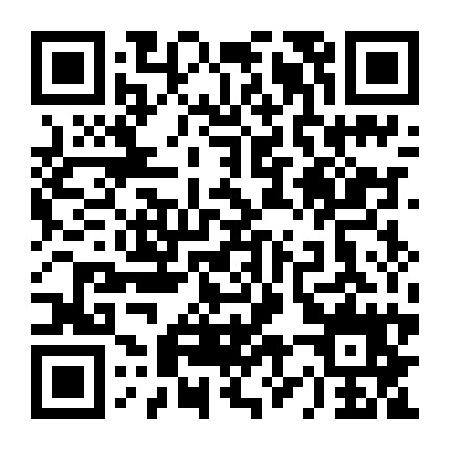新东方在线考博频道给大家整理的相关内容,希望能够对大家的考博考试备考有所帮助,更多有关考博的备考内容,欢迎随时关注新东方在线考博频道。
An AIDS Mystery Solved
(1) About 15 years ago, a well-meaning man donated blood to the Red Cross in Sydney, Australia, not knowing he has been exposed to HIV-1, the virus that causes AIDS. Much later, public-health officials learned that some of the people who got transfusions? containing his blood had become infected with the same virus; presumably they were almost sure to die. But as six years stretched to 10, then to 14, the anxiety of health officials gave way to astonishment. Although two of the recipients have died from other causes, not one of the seven people known to have received transfusions of the man’s contaminated blood has come down with AIDS. More telling still, the donor, a sexually active homosexual, is also healthy. In fact his immune system remains as robust as if he had never tangled with HIV at all. What could explain such unexpected good fortune?
(2) A team of Australian scientists has finally solved the mystery. The virus that the donor contracted and then passed on, the team reported last week in the journal Science. contains flaws in its genetic script that appear to have rendered it innocuous?. “Not only have the recipients and the donor not progressed to disease for 15 years,” marvels molecular biologist Nicholas Deacon of Australia’s Macfarlane Burnet Centre for Medical Re-search, “but the prediction is that they never will.” Deacon speculates that this “impotent” HIV may even be a natural inoculant? that protects its carriers against more virulent strains? of the virus, much as infection with cowpox warded off smallpox in 18th-century milkmaids.
(3) If this ______ proves right, it will mark a milestone in the battle to contain the late-20th century’s most terrible epidemic. For in addition to explaining why this small group of people infected with HIV has not become sick, the discovery of a viral strain that works like a vaccine would have far-reaching implications. “What these results suggest,” says Dr. Barney Graham of Tennessee’s Vanderbilt University, “is that HIV is vulnerable and that it is possible to stimulate effective immunity against it.”
(4) The strain of HIV that popped up? in Sydney intrigues scientists because it contains striking abnormalities in a gene that is believed to stimulate viral duplication. In fact, the virus is missing so much of this particular gene — known as nef, for negative factor — that it is hard to imagine how the gene could perform any useful function. And sure enough, while the Sydney virus retains the ability to infect T cells — white blood cells that are critical to the immune system’s ability to ward off infection — it makes so few copies of itself that the most powerful
molecular tools can barely detect its presence. Some of the infected Australians, for example, were found to carry as few as one or two copies of the virus for every 100000 T cells. People with AIDS, by contrast, are burdened with viral loads thousands of times higher.
(5) At the very least, the nef gene offers an attractive target for drug developers. If its activity can be blocked, suggests Deacon, researchers might be able to hold the progression of disease at bay, even in people who have developed full-blown AIDS. The need for better AIDS-fighting drugs was underscored last week by the actions of a U.S. Food and Drug Administration advisory panel, which recommended speedy approval of two new AIDS drugs, including the first of a new class of compounds called protease? inhibitors?. Although FDA commissioner David Kessler was quick to praise the new drugs, neither medication can prevent or cure AIDS once it has taken hold.
(6) What scientists really want is a vaccine that can prevent infection altogether. And that’s what makes the Sydney virus so promising — and so controversial. Could HIV itself, stripped of nef and adjacent sections of genetic material, provide the basis for such a vaccine, as Deacon and his colleagues cautiously suggest? Ongoing work on SIV, the simian? immunodeficiency virus that causes an AIDS-like illness in monkeys, indicates that this might be less far-fetched than it sounds. Ronald Desrosiers at the New England Regional Primate Re-search Center has demonstrated that when the nef gene is removed from SIV, the virus no longer has the power to make monkeys sick. Moreover, monkeys inoculated? with the nef free SIV developed marked resistance to the more virulent strain.
(7) But few scientists are enthusiastic about testing the proposition by injecting HIV — however weakened — into millions of people who have never been infected. After all, they note, HIV is a retrovirus?, a class of infectious agents known for their alarming ability to integrate their own genes into the DNA of the cells they infect. Thus once it takes effect, a retrovirus infection — unlike those of viruses that cause measles, smallpox and any number of others diseases — is permanent. While some retroviruses are benign, others can strike without warning. Some remain hidden for years, only to trigger disease late in life when the immune system starts to decrease.
(8) This makes vaccine development extremely risky. A weakened strain of SIV that protected adult monkeys, for example, looked safe until researchers at the Dana Farber Cancer Institute in Boston showed that newborn monkeys with
immature immune systems did not respond as healthy adults do. All the young primates, in fact, developed the very disease the weakened virus was supposed to prevent. For this and a host of other reasons, most AIDS researchers argue that the only prudent strategy is to concoct? a hybrid? vaccine, putting the key features of a disabled AIDS virus into something more benign than a retrovirus. Among the leading candidates: the vaccinia virus that successfully wiped out smallpox.
(9) A handful of researchers, however, argue that the more dangerous retroviral vaccine should not be written off prematurely. Desrosiers, for one, believes the situation in parts of the developing world (where the chance of HIV infection may reach 40% among sexually active adults) has become so desperate that a retroviral vaccine may be worth the ______. A live vaccine made from HIV, he maintains, can be made safer by removing not just the nef gene but several others as well. Desrosiers has found that he can cripple HIV by chemically deleting four of its nine known genes and still get a virus that replicates, at least in chimpanzees.
(10) At present, concerns about safety are so overwhelming that efforts to develop a live retroviral vaccine are unlikely to win much support. But that could change as studies of long-term survivors — that small, charmed circle of people who have been infected with the AIDS virus but have remained disease-free — provide new insights into the weaknesses of the viral enemy and the untapped strengths of its human targets. “These individuals,” observes Dr. Warner Greene, director of the Gladstone Institute of Virology and Immunology in San Francisco, “are natural experiments, and they hold a great secret that we are still trying to decipher?.” Indeed, it is entirely possible that the eight Australians who have caused such a stir will be cited by medical texts as the first people on the planet to be successfully, if accidentally, vaccinated against the AIDS virus — a virus that until now has seemed all but invincible.
【译文】
艾滋之谜揭晓
(1) 大约在15年前,澳大利亚悉尼有一位人士好心向红十字会捐血,不知道自己已感染HIV-1型——这是造成艾滋病的病毒。多年以后,公共卫生官员发现,有些接受他血液输血的人,也受到病毒感染。这些人应该是难逃死亡的噩运。可是6年、10年、14年过去了,卫生官员的焦虑变为惊奇。虽然其中有两个人因其他原因死亡,可是接受遭污染血液输血的这7个人当中,没有一个人罹患艾滋病。更引人注目的是,那位捐血人——一个有性行为的同性恋者——仍然活得好好的。他的免疫系统十分强壮,就像从没染上HIV一样。这种意外的好运要如何解释?
(2) 一批澳大利亚科学家终于解开了谜团。他们在上周的《科学》期刊发表报告指出:这位捐血人染上然后传出去的病毒,基因结构有缺陷,可能因此变成无害。澳大利亚麦法兰? 伯奈特医学研究中心的分子生物学家迪肯啧啧称奇:“捐血人与输血人不仅15年来没有发病,而且应该永远不会发病。”迪肯大胆假设这种无能的HIV甚至可能是天然的疫苗,可以保护带原者不受更厉害的病毒品种侵袭,就好像18世纪挤牛奶的女工感染牛痘之后就能抵抗天花一样。
(3) 如果这个预感成真,那么在围堵20世纪末最可怕的传染病的战斗上,要立下一座里程碑。因为,发现一种具有疫苗功能的病毒品种,不仅能解释这一小群受到 HIV感染的人何以不发病,还具有更深远的涵义。田纳西州范德堡大学的格雷姆博士说:“这些结果暗示HIV也有弱点,也表示有可能刺激免疫系统来有效地对抗它。”
(4)在悉尼发现的这种HIV品种,引起科学家高度的头趣,因为它有一个基因严重异常。一般认为这是刺激病毒去复制自我的基因。这种病毒在这个叫做“否因”(代表否定因素)的基因中大部分残缺不全,很难想象这个基因能产生什么作用。果然,这种悉尼病毒虽然有能力感染T细胞(免疫系统对抗感染时最关键的白血球细胞),可是复制的能力极差,连最强大的分子工具也很难侦测到它的存在。就拿受到感染的这些澳大利亚人来说,其中有些人体内每10万个T细胞才有一二个病毒。相反的,艾滋病患者则要承担高几千倍的病毒量。
(5)“否因”基因最低限度对制药公司是很大的诱惑。迪肯认为,假如能够阻断这种基因的活动,研究人员就有可能阻止病情的进展,就算是已经全面发作的艾滋病病人也一样有用。对更好的艾滋药物需求十分殷切,这由美国食品药物管理局(FDA)顾问小组上周的一项行动可以看出。这个小组建议尽快批准两种艾滋新药,包括一类全新的化合物,称为蛋白酶抑制剂。FDA局长戴维? 凯斯勒迅速赞扬这些新药,可是这两种药都无法预防艾滋病,在感染艾滋病毒后也无法治愈。
(6)科学家真正想要的是能完全预防感染的疫苗,所以悉尼病毒才被寄以厚望,也才会引起争议。HIV病毒除去“否因”与邻近的一些基因物质后,是否真如迪肯和他的同僚审慎暗示的一样,可以作为艾滋病疫苗的基础?这个构想听来很牵强,但是目前对猿猴免疫不全病毒(SIV,造成猿猴罹患类似艾滋病的病毒)所做的研究显示并非毫无根据。新英格兰区灵长类研究中心的戴斯罗士已经证明,从 SIV中除去“否因”基因后,病毒就无法使猿猴发病。而且,猿猴接种过已去除“否因”的SIV后,会发展出明显的抵抗力,可以抵抗毒性强的SIV品种。
(7) 但是没有几个科学家热衷于检验这个构想——在几百万个没有感染过艾滋病的人身上注射HIV(不论削弱到什么程度)。科学家指出,毕竟HIV是逆转录酶病毒。这种传染媒介原以一种可怕的能力著称:能把本身的基因合并到受感染细胞的DNA内。所以一旦感染上逆转录酶病毒,就永远摆脱不掉。这和造成麻疹,天花以及其他许多疾病的病毒都不一样。有些种类的逆转录酶病毒是良性的,也有一些发作起来毫无征兆。有些则是潜伏多年,直到人进入老年,免疫系统功能衰退时才发病。
(8)因此,开发疫苗的风险极大。举例来说,有一种削弱了的SIV病毒可以保护成年猴子,
似乎也很安全。可是波士顿戴纳? 法柏癌症研究所的人员后来发现,初生的小猴,免疫系统尚不成熟,反应也和健康的成猴不同。这些小猴全部发生了当初用弱性疫苗所要预防的疾病。因为这个案例,再加上许多别的原因,艾滋病研究人员大多主张,唯一较谨慎的策略是调配出混种病毒,也就是把弱化艾滋病毒的主要特征放到比逆转录酶病毒良性的病毒中。最理想的对象包括当年成功扑灭天花的疫苗病毒。
(9)也有少数几位研究人员,主张不能断然否定掉危险性较高的逆转录酶病毒疫苗。戴斯罗士就认为,某些发展中国家的情况十分危急(有性行为的成年人感染HIV的比例可以达到40% ),值得冒险一试逆转录酶病毒疫苗。他主张可以把HIV病毒中的几种基因与“否因”一并移除,就能增加活疫苗的安全性。戴斯罗士发现,可以用化学方式删除 HIV9种已知基因中的4种,破坏掉HIV的力量,制造出来的病毒仍然会复制——至少在黑猩猩身上可以。
(10)目前对于安全性的关注高过一切,要想培养活的逆转录酶病毒疫苗,不大可能得到太多人支持。可是情况也可能改变。对艾滋病长期生存者的研究(也就是那一小群感染到艾滋病毒却一直没有发病的幸运者),可以让我们更深入了解病毒的弱点与人类尚未发现的力量。旧金山格莱斯顿病毒与免疫研究所所长格林博士表示:“这几个人是大自然的实验,手中握有一大奥秘,还有待破谜。”确实,这8 名引起轩然大波的澳大利亚人,很有可能被医学文献列为地球上最早成功地(尽管是意外地)接受艾滋病毒免疫注射的人——虽然到目前为止艾滋病毒好像还是所向无敌。
以上就是新东方在线考博频道给大家整理的相关内容,希望对大家有所帮助,更多备考内容,欢迎随时关注新东方在线考博频道。
考博必备!历年真题及答案
考博精品好课,就选新东方!

 资料下载
资料下载
【必看】考博英语词汇10000例精解
发布时间:2020-09-02关注新东方在线服务号
回复【10000】免费获取
医学考博英语作文核心基础词汇整理
发布时间:2020-04-15关注新东方在线服务号
回复【医学考博】获取
医学考博英语阅读理解练习资料
发布时间:2020-04-15关注新东方在线服务号
回复【医学考博】获取
法学考博英语高频词汇word版
发布时间:2020-04-15关注新东方在线服务号
回复【医学考博】获取
医学博士英语统考真题及解析
发布时间:2019-12-26关注新东方在线服务号
回复【考博真题】获取
全国医学博士外语统一考试真题
发布时间:2019-12-26关注新东方在线服务号
回复【考博真题】获取
中科院考博英语复习备考实战经验分享
发布时间:2019-12-26关注新东方在线服务号
回复【考博经验】获取
中科院考博英语真题练习资料
发布时间:2019-12-26关注新东方在线服务号
回复【考博真题】获取

关注新东方在线服务号
关注新东方在线服务号,
免费获取考博必看干货资料

 推荐阅读
推荐阅读
随着2025年考博接近尾声,2026年新一轮的备考也悄然拉开帷幕。还有很多学生会不明晰考博什么时候准备最好?该怎么做时间规划?需要准备多久
很多同学是第一次备考博士,英语不知如何下手。因此小编整理了2026年医学考博英语备考攻略,希望在大家备考时有帮助。一、2026年医学考博英
来源 : 网络 2025-05-12 16:45:48 关键字 : 医学考博英语
考博英语复习备考中,查找一些具体的备考资料,对于大家来说也是比较耗时的事情。为了让大家更好的来备考考博考试,小编为大家整理了一
来源 : 网络 2025-05-08 18:17:56 关键字 : 考博英语句型模板
考博英语复习备考中,查找一些具体的备考资料,对于大家来说也是比较耗时的事情。为了让大家更好的来备考考博考试,小编为大家整理了一
来源 : 网络 2025-05-08 18:17:32 关键字 : 考博英语句型模板
考博英语复习备考中,查找一些具体的备考资料,对于大家来说也是比较耗时的事情。为了让大家更好的来备考考博考试,小编为大家整理了一
来源 : 网络 2025-05-08 18:17:13 关键字 : 考博英语句型模板


 考博好课推荐
考博好课推荐
基础薄弱,备考迷茫,送纸质资料
价格 : ¥2280元
资深教师,教学简明,直接有效!
价格 : 0元
 资料下载
资料下载
关注新东方在线服务号
回复【10000】免费获取
关注新东方在线服务号
回复【医学考博】获取
关注新东方在线服务号
回复【医学考博】获取
关注新东方在线服务号
回复【医学考博】获取
关注新东方在线服务号
回复【考博真题】获取
关注新东方在线服务号
回复【考博真题】获取
关注新东方在线服务号
回复【考博经验】获取
关注新东方在线服务号
回复【考博真题】获取

 阅读排行榜
阅读排行榜
 相关内容
相关内容